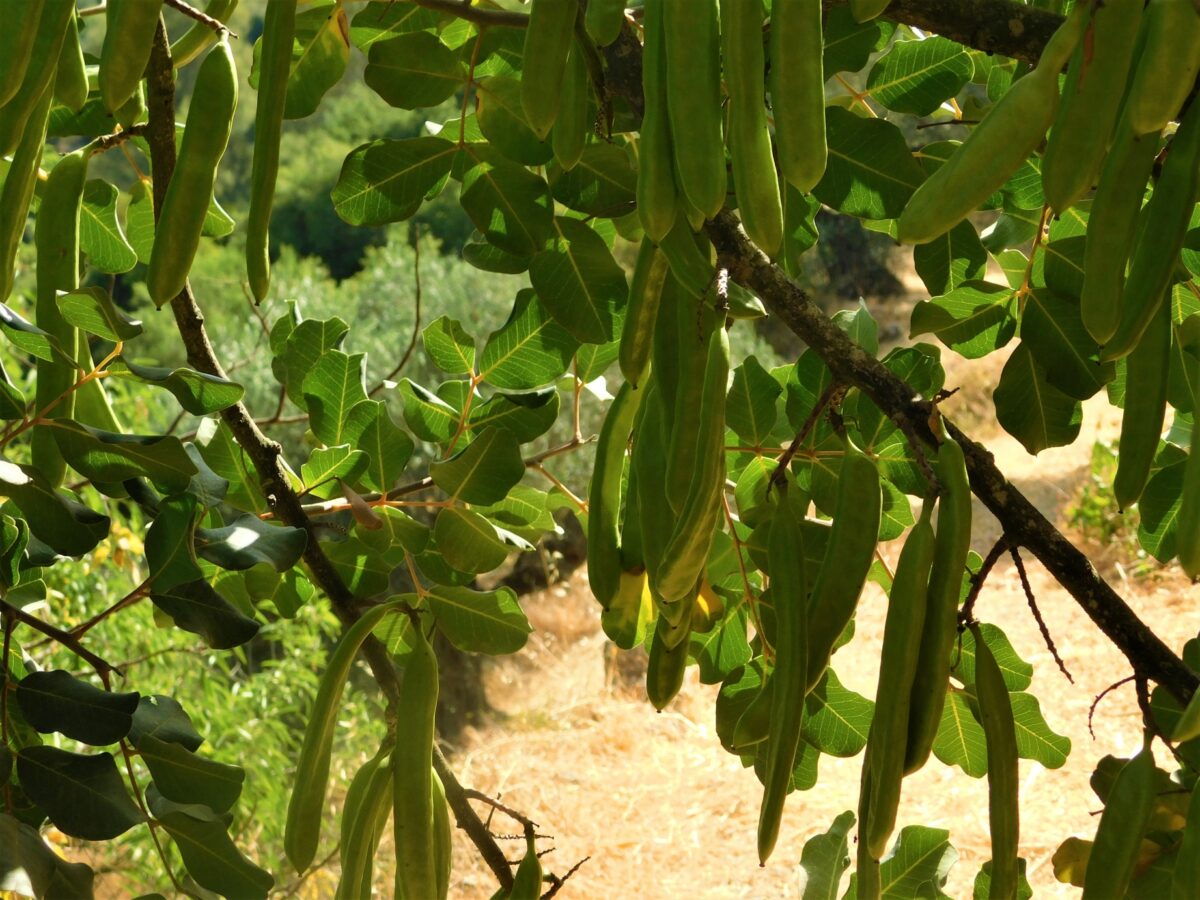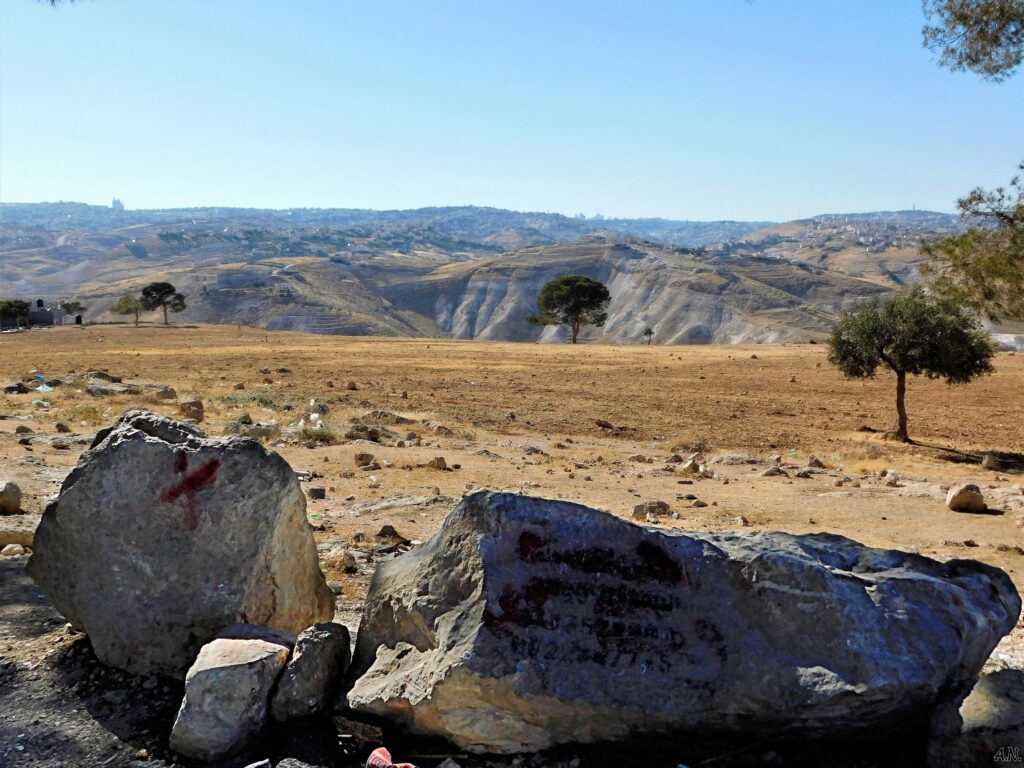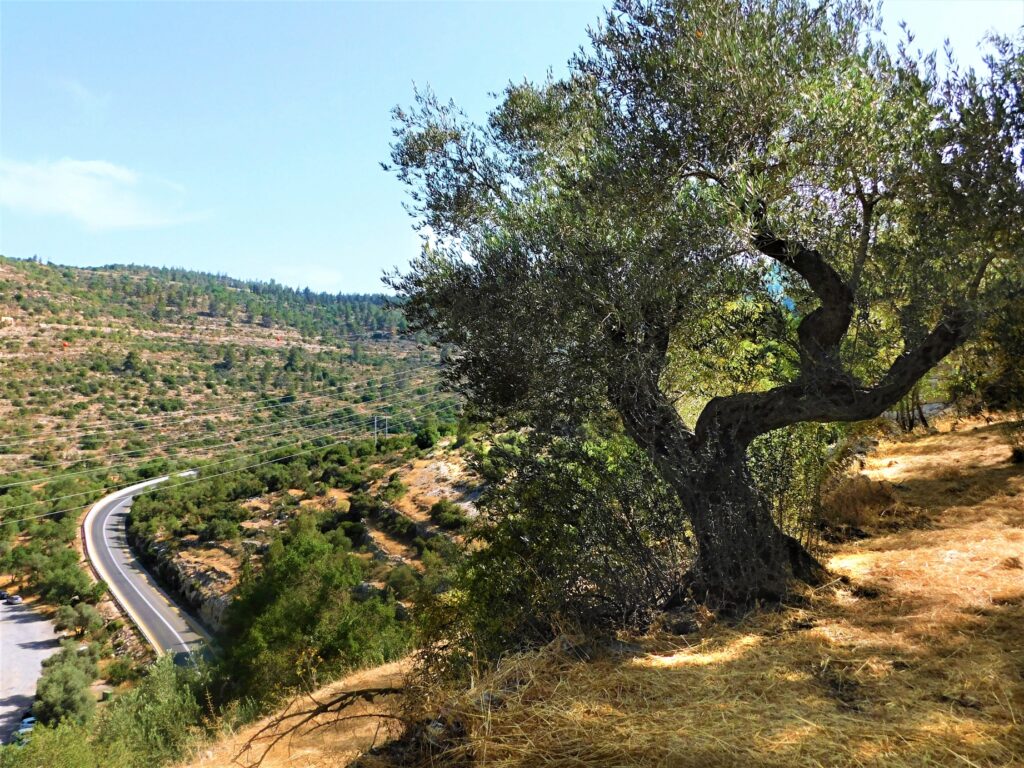#TomorrowIsSunday (EN+ES) | What is the scandal of mercy?


Carob tree, carob (Ceratonia siliqua L.) The prodigal son wanted to satisfy his hunger with pods of this tree, but they were given only to pigs, photo credit_sr. Amata CSFN
Fourth Sunday of Lent, Year C
Sunday, March 27th, 2022
Gospel of Luke 15: 1-3. 11-32
EN https://bible.usccb.org/bible/readings/032722-YearC.cfm
You can download the commentary on todays Gospel and beautiful photos:
https://www.academia.edu/74622713/What_is_the_scandal_of_mercy?source=swp_share
*
Cuarto Domingo de Cuaresma, Año C
Domingo, 27 de marzo del 2022
Evangelio de Lucas 15,1-3.11-32
ES https://bible.usccb.org/es/bible/lecturas/032722-AnoC.cfm
1 The scandal of mercy
Today’s parable is the most moving passage in the Gospel. It reveals what the scandal of mercy is all about: “Why is God merciful to someone who does not deserve it?” (as Archbishop G. Ryś put it). In this parable we see that God always welcomes us and forgives all our faults, but He waits for us to make a move. He wants to grant us forgiveness, His life and all that belongs to Him, if only we are willing to return to Him, that is, if we are converted.
2 Key Words
The eyes of the Father
There is an expression in Polish that means “to look out one’s eyes”, that is, to wait for someone so much, to look him out, that the eyes are already weak and tired. Such are the eyes of the Father in the parable, who longingly awaits his son and his return home. They are the eyes of someone who loves.
The Father’s hands
The Father’s hands are ready to embrace his son with love and tenderness. They are also ready to support him. In Rembrandt’s famous painting “The Return of the Prodigal Son,” we see that each of the father’s hands is different. One is like a woman’s hand, tender and caring; the other is a strong man’s hand that supports and sustains. Such is the love of God: it is both maternal and paternal.
The robe, the ring, and the sandals
The father gives his son a special robe (in Greek “stole”). Such a garment signified reverence for a special guest. It also symbolizes the robe worn by the saved. He also gives him a ring, a sign of authority, a right to his inheritance. The sandals, on the other hand, emphasize the son’s free state and his dignity.
All this is given to the son who has sinned against the Father. He returns in rags, with his shoes torn off, and with an empty purse, as we see in Rembrandt’s painting. The son has a shaven head with wounds, which may indicate that he was in prison.
Coming to his senses [the son] thought, (…) ‘I shall get up and go to my father’
The father waits, longs for his son’s return, but respects his freedom. The turning point in the story is only when the son reflected and decided to return home to his father. He turned back from the path of sin. He found out that this road leads nowhere, and that it seemed wonderful to him when he left home. The turning point was his decision to convert.
3. Today
The father in the parable is God. His prodigal sons – children – are us. God is always merciful. “No one is lost, because God does not hand out candy to good children, but raises up those who have touched the bottom”. (Bishop G. Ryś).
Do I want God to lift me up? Do I want to come back to him? Do I want to leave my bad ways? He is waiting. Now everything depends on my decision.

Judea, near Jerusalem in the Cedron Valley, photo credit: sr. Amata CSFN
*
1. Introducción – El título
La parábola de hoy es uno de los pasajes más conmovedores del Evangelio. Revela en qué consiste el escándalo de la misericordia: “¿Por qué Dios es misericordioso con quien no lo merece?” (como dijo el arzobispo G. Ryś). En esta parábola vemos que Dios siempre nos acoge y perdona todas nuestras faltas, pero espera a que nosotros demos el primer paso. Quiere regalarnos su perdón, su vida y todo lo que le pertenece, si sólo estamos dispuestos a volver a Él, es decir, si nos convertimos.
2. Palabras clave
Los ojos del Padre
Hay una expresión en polaco que significa “mirar de reojo”, es decir, esperar tanto a alguien, estar pendiente de él hasta el punto de que los ojos ya están débiles y cansados. En la parábola, eso es cierto en el caso de los ojos del Padre, que espera con anhelo que su hijo vuelva a casa. Son los ojos de alguien que ama.
Las manos del Padre
Las manos del Padre están dispuestas a abrazar a su hijo con amor y ternura. También están dispuestas a sostenerlo. En el famoso cuadro de Rembrandt, “El regreso del hijo pródigo”, vemos que las manos del Padre son diferentes. Una es como la mano de una mujer, tierna y cariñosa; la otra es una mano de hombre fuerte que apoya y sostiene. Así es el amor de Dios: a la vez maternal y paternal.
La túnica, el anillo y las sandalias
El Padre da a su hijo una túnica especial (gr. sto). Esta prenda significaba la reverencia hacia un invitado especial. También simboliza la túnica que llevan los salvados. Le da también un anillo, signo de autoridad, derecho a su herencia. Las sandalias, en cambio, subrayan el estado de libertad del hijo y su dignidad.
Todo esto se le da al hijo que ha pecado contra el Padre. Vuelve vestido con harapos, con los zapatos estropeados y los bolsa vacía, como vemos en el cuadro de Rembrandt. La cabeza del hijo está afeitada y cubierta de heridas, lo que puede indicar que estuvo en prisión.
Entonces [el hijo] reflexionó y dijo: “(…) Me levantaré, volveré a mi padre”.
El padre espera, anhela el regreso de su hijo, pero respeta su libertad. El punto de inflexión de la historia sólo se produce cuando el hijo ha reflexionado y ha decidido volver a casa de su padre. Se apartó del camino del pecado. Descubrió que ese camino, que le parecía maravilloso cuando salió de casa, en realidad no lleva a ninguna parte. El punto de inflexión fue su decisión de convertirse.
3. Hoy
El padre de la parábola es Dios. Sus hijos pródigos -hijos- nos representan a nosotros. Dios es siempre misericordioso. “Nadie está perdido, porque Dios no reparte caramelos a los niños buenos, sino que levanta a los que han tocado fondo” (Mons. G. Ryś).
¿Quiero que Dios me levante? ¿Quiero volver a él? ¿Quiero dejar mis malos caminos? Él está esperando. Ahora todo depende de mí.

Carob tree, carob (Ceratonia siliqua L.) The prodigal son wanted to satisfy his hunger with pods of this tree, but they were given only to pigs, photo credit_Sr. Amata CSFN
You can read also:
#TomorrowIsSunday (EN+ES) | Why Does Jesus Pray? >>>
#TomorrowIsSunday (EN+ES) | What Should One Do when Tempted? >>>
#TomorrowIsSunday (EN+ES) | What Do a Hypocrite and a Mask Have in Common? >>>
#TomorrowIsSunday (EN+ES) | Why should we love our enemies? >>>
#TomorrowIsSunday (EN+ES) | Jesus’ Counsel Regarding Hatred Prompted by Faith >>>
#TomorrowIsSunday (En+ES) | In the Bible, what does it mean to be “fisher of men”? >>>
#TomorrowIsSunday (EN+ES) | Why is Nazareth a Tragic City? >>>
#TomorrowIsSunday (EN+ES) | Who is Theophilus for whom Luke wrote the Gospel? >>>



Dodaj komentarz